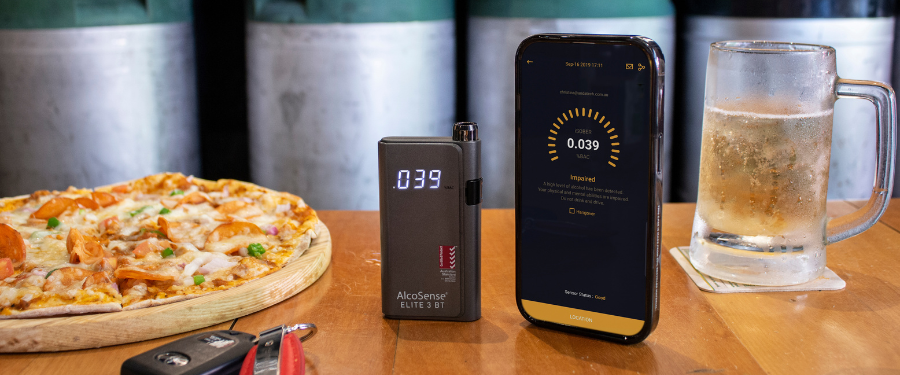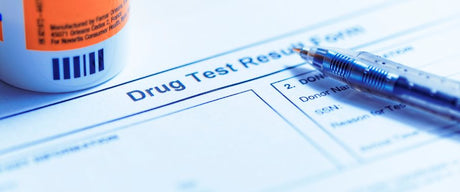Blood alcohol level or blood alcohol content (BAC) is a more complex issue than most people tend to believe. Unfortunately, there is no single formula that can determine someone’s exact BAC.
Alcohol intoxication is linked to your BAC. The higher your blood alcohol content, the more intoxicated you will feel. Below is a table of symptoms you are likely to feel and their corresponding BAC level.
| BAC Level | Symptoms |
| 0.00%BAC | Sober. There's no alcohol in your blood. |
| 0.01% to 0.05%BAC | Altered mood, relaxation, lowered alertness and impaired judgement |
| 0.06% to 0.15%BAC | Reduced muscle coordination, reduced reaction time, slurred speech, nausea, loss of balance and some muscle control. |
| 0.16% to 0.30%BAC | Confusion, drowsiness. Individual may also notice their coordination, motor skills, decision making, and judgement becomes dangerously impaired. |
| 0.4%BAC or over | Potentially fatal BAC level. Drinkers are at risk of come or death from respiratory arrest. |
What affects your intoxication level?
You and a friend of the same weight, gender, and size could be drinking the same amount of alcohol and still show up with different blood alcohol level on the same breathalyser.
This is because the amount of alcohol content in the bloodstream is determined by a plethora of variables. By familiarising yourself with these often overlooked variables, you can better understand your body’s reaction to alcohol and improve your drinking patterns.
Below are some factors that affect your blood alcohol content and intoxication level:
Age
Understandably, the body’s digestive system becomes less effective as one gets older. Therefore, older individuals are more likely to exhibit the effects of intoxication.
Gender
It is scientifically proven that men have a substantially higher amount of enzymes to break down alcohol molecules. Furthermore, womens’ bodies’ contain a lower percentage of water than mens’ bodies. Since alcohol is a water soluble chemical, men can absorb a lot more of it. Therefore, men are naturally less prone to the effects of intoxication.
Rate of consumption
Basically, drinking at a faster rate correlates with a steeper rise in blood alcohol content. One of the most effective strategies is to not only reduce the rate of your consumption, but to rehydrate the body with water. In many countries, bars and clubs are legally required to offer free tap water.
Drink strength
Know the alcohol content within beer, wine, spirits and mixed drinks. It’s essential to be especially weary of mixed drinks; sodas and sweet juices are very effective at disguising the taste of alcohol. When you’ve already had a lot to drink, a Margarita spiked with 3 shots of vodka could very well taste identical to its virgin counterpart.
Body type and fat or muscle content
Those who are not familiar with how different body types handle alcohol may be in for a surprise! Health articles, lifestyle magazines, informational articles, and blogs mention the importance of diet and exercise verbatim. While it’s true that healthier and slimmer individuals are less at risk to develop various diseases, their larger and more sedentary counterparts tend to fare better in the partying realm!
Metabolism
Metabolism varies from person to person, and describes the rate at which alcohol is processed by the body.
Emotional state
Surprisingly, our emotional state can affect our BAC too. Stress can cause the body to divert blood from the stomach and small intestines to the muscles, and therefore slow down the rate of absorption of alcohol into the bloodstream. On the other hand, when you calm down and your blood flows normally again, you may experience a surge in blood alcohol level.
Medications
We tend to forget that alcohol itself is drug. As such, it can interact with a variety of prescription medications. Many pills are known to act as catalysts and exacerbate the negative side effects of alcohol.
Food
Drinking alcohol on an empty stomach will raise our BAC higher than a person who has eaten before drinking. Food slows down the absorption of alcohol into the bloodstream by keeping the alcohol you consume in the stomach for a longer period of time.
Carbonation
Even non-alcoholic carbonated beverages can worsen the side effects of alcohol. The gasses within these drinks put the digestive system into “overdrive”. As a result, alcohol can pass a lot more quickly through the body. In this case BAC levels will be higher than usual.
Diabetes
Alcohol produces a chemical reaction which substantially spikes the body’s glucose levels. It is imperative that diabetics always consult their doctors regarding alcohol consumption. Even if you are a casual drinker, it is essential that you have eaten at least an hour before drinking.
Alcohol intolerance
While it may sound cliché, any online advice is the tip of the iceberg compared to what you’ll learn at an appointment with your family doctor. After all, many people are genetically predisposed to be sensitive to alcohol. There are countless disorders which can affect your BAC levels. Your doctor will help you devise a manageable preventative strategy to control your drinking.
If you are hosting or attending a house party, remember to exercise common sense. If you’ve already reached your limit, don’t be afraid to refuse custom mixed drinks from friends. Saying no is a lot nicer than throwing up and passing out on their kitchen table.
With all these factors influencing BAC, you should never rely on counting drinks or using calculators to make an important decision.
AlcoSense personal breathalysers measure accurately estimate your BAC by measuring the alcohol content found within one's breath. This is by far the easiest, most accurate and most accessible method of calculating one's BAC





